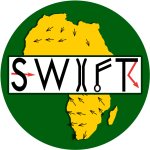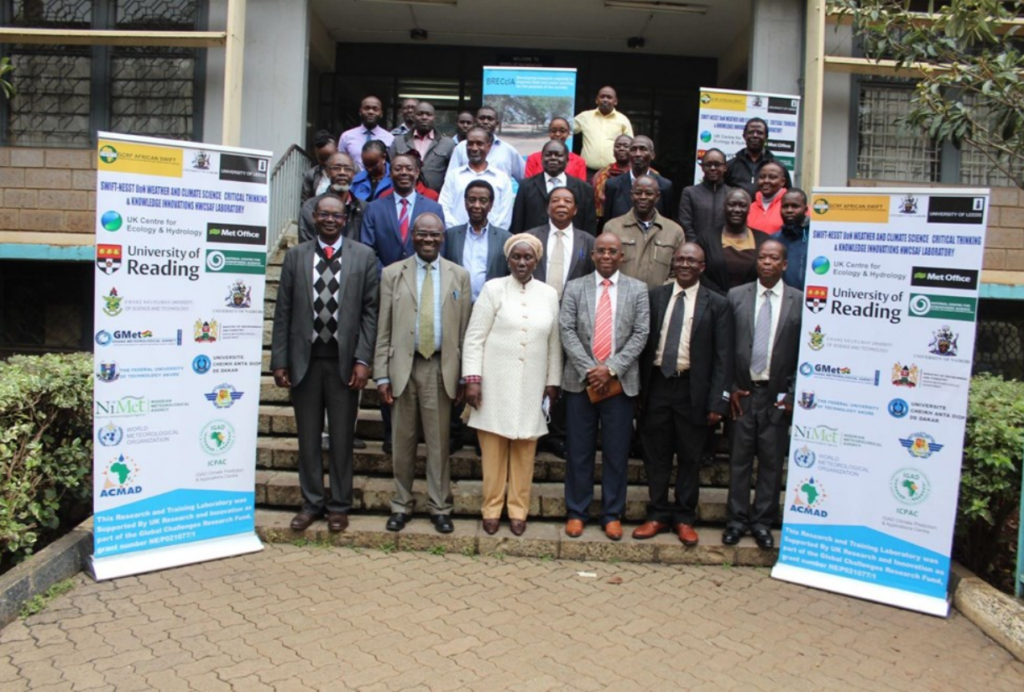
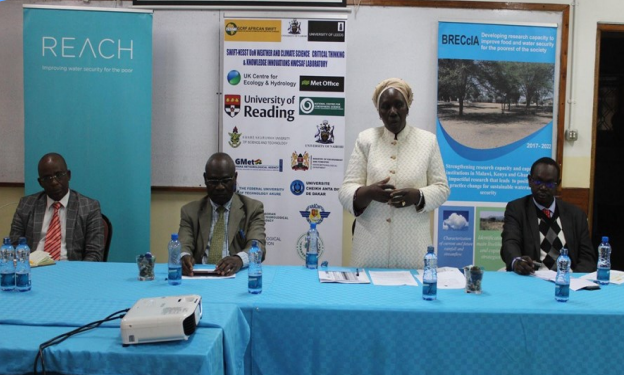
Speaking during the launch of the SWIFT-NESST Laboratory at the Meteorology unit, Prof Hutchinson, the Associate Vice Chancellor- Research, Innovation and Enterprise (AVC-RIE) reminisced about the unpredictability of rainfall distribution in both space and time and the challenge that it posed on the agricultural activities like planting season during her tenure as an agricultural officer in Trans Nzoia in the 1980s. She expressed her gratitude for the recognition of the critical environmental challenges, such climate variability and climate change, facing not only Kenya but the continent of Africa. She celebrated the potential of the laboratory in the realization of timely and accurate weather forecasts, together with effective data and communication as a milestone for the UoN in research for impacts, technological transfer, and knowledge sharing as it increases the visibility of the institution. She expressed her appreciation for this effort put in towards weather and climate modelling with high performance computing, and the potential of sharing the information derived through acquisition and analysis of real time data from satellites that can be used by the stakeholders in different organizations.
She expressed her immense appreciation for collaborations and partnerships that culminated in
the acquisition, setting up and operationalization of the lab. While acknowledging the role of university and partnerships in promoting North-South technological transfer and uptake, West-East intra-Africa knowledge sharing, mentorship of early career researchers by the established faculty, researchers and practitioners via workshops and summer schools, the AVC-RIE appreciated the UKRI funding and the UK- Africa partnerships. She also lauded the role of academia, operations, industry and policy makers. Such crosscutting all-inclusive collaborations often generate
actionable evidence-based policies.
She concluded her speech by encouraging every researcher, including those visiting the UoN, to
utilize the laboratory so as to enable the university have a voice approach to the economy in order
to protect and secure livelihoods.
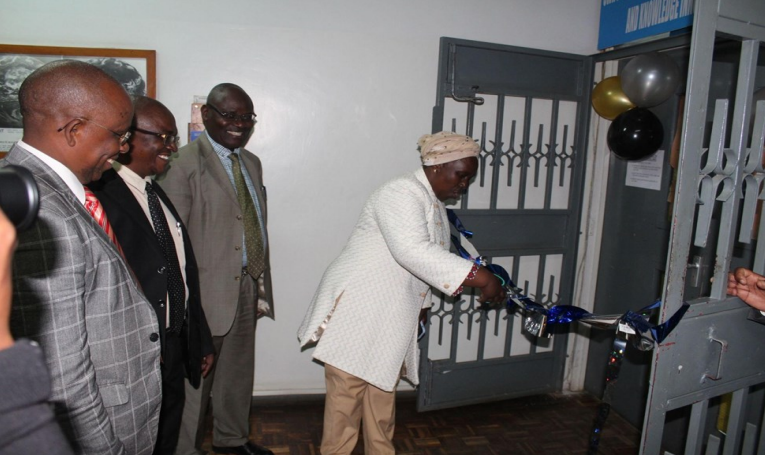
Prof Mulaa, Associate Dean- FST (right) witnessing Prof. Hutchinson inaugurating the Weather and
Climate Science laboratory at the Meteorology Unit of the Department of Earth and Climate
Sciences, Faculty of Science and Technology.
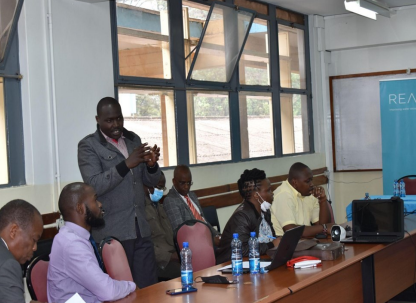
Given that rainfall radar estimates are not widely available in Africa, rapidly growing and urbanizing population and economic activity are highly vulnerable to rapidly changing weather conditions, Dr. Bethwel Mutai (lecturer and research scientist) pointed out the enormous value and potential of nowcasting in Africa and Kenya. He emphasized that since lives and livelihoods are directly impacted by High Impact Weather (HIW) and climate-related risks, timely issuing of warnings, (of say a few hours) before an event, can enable the public and decision-makers to take action. Given the dearth of rainfall radar estimates which are not widely available in Africa, and that Numerical Weather Prediction (NWP) of Mesoscale Convective Systems (MSC) composing HIW currently has low skill over the continent.
Dr. Mutai concluded that the delivery of nowcasting products are crucial for nowcasting to warn users on pending severe storms. He demonstrated the utility of NWCSAF products for practical training at UoN and University of Rwanda.
